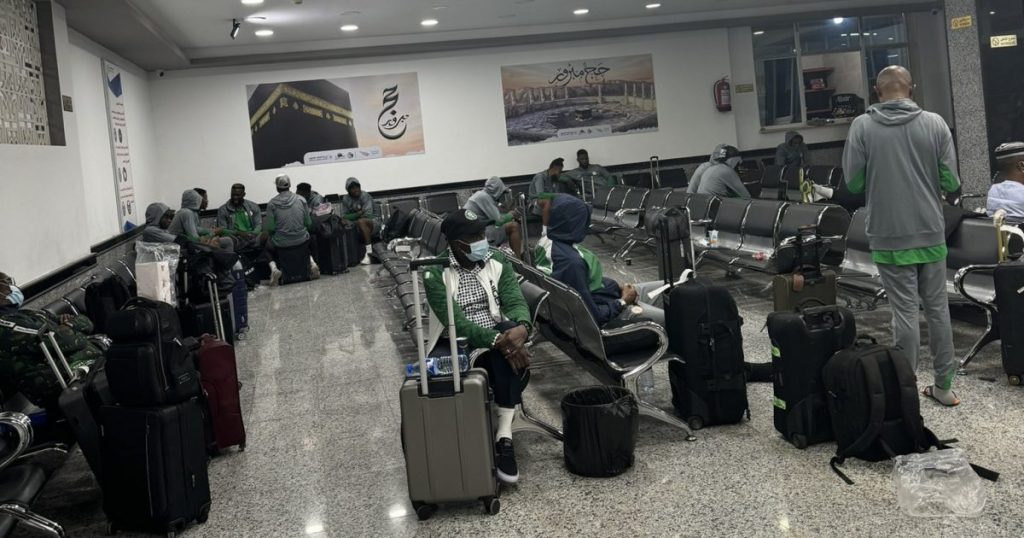The Nigeria Football Federation (NFF) has taken the drastic step of withdrawing the Super Eagles from their scheduled 2025 Africa Cup of Nations (AFCON) qualifier against Libya due to severe logistical issues encountered upon arrival. The Nigerian team’s journey to Benghazi turned into a frustrating ordeal when their chartered flight was unexpectedly diverted to Al Abraq International Airport, a smaller facility typically designated for Hajj operations. This diversion left the players and officials stranded for over 12 hours without any assistance or alternative transportation provided by the Libyan Football Federation. The NFF expressed their frustration in a statement, highlighting the chaotic situation that unfolded as the players struggled to cope with the unexpected turn of events.
Upon landing at Al Abraq Airport, the NFF reported that the Super Eagles were unable to reach their accommodation in Benghazi, which was approximately three hours away. The NFF confirmed that the chartered aircraft was dangerously redirected to the small airport just as the pilot was nearing the approach to Benghazi. As a result of the poor handling of the situation—especially the absence of support from the Libyan authorities—the players collectively decided to forfeit the match and return to Nigeria. This decision was made with the NFF’s full backing, which has since initiated the arrangements for the team to depart back home rather than compete in a match for which the circumstances were far from ideal.
Super Eagles captain William Troost-Ekong publicly criticized the treatment the team received upon their arrival in Libya. In a series of tweets, he described the situation as “disgraceful” and accused the Libyan authorities of engaging in what he referred to as “mind games.” Troost-Ekong recounted the nightmarish experience they endured while confined to an abandoned airport without access to basic necessities such as food, water, or even mobile phone connections. He expressed disbelief at the conditions the team had to face, noting that they had been stranded for over 12 hours without a clear explanation for the government’s actions.
In his comments, Troost-Ekong highlighted not only the team’s plight but also the struggles faced by their pilot, who skillfully managed the unforeseen diversion. Despite his professionalism, the pilot was denied accommodation by Libyan authorities under orders, forcing his crew to sleep aboard the plane while he managed to arrange temporary housing at the airport. Troost-Ekong’s frustration extended to the broader implications of the delegation’s treatment in Libya, emphasizing that such discourteous behavior undermines the spirit of sportsmanship and international cooperation.
The scenario unfolded against a backdrop of tense relations and historical challenges for teams traveling to play in Africa. Troost-Ekong noted that while he had previously encountered difficulties on the continent, the level of neglect and lack of basic hospitality they experienced in Libya was unprecedented. He condemned how governmental actions appeared to be a deliberate tactic aimed at unsettling the Nigerian delegation. This situation raised concerns not only about the immediate welfare of the players but also about the implications for future fixtures and collaborations between nations in the world of sports.
In conclusion, the Super Eagles’ experience in Libya reflects a significant breakdown in communication and logistical planning, ultimately resulting in their withdrawal from the AFCON qualifier. The decision to return home encapsulates the sentiment among the players and the NFF that the conditions under which they would have competed were unacceptable. As discussions unfold surrounding the operational failures that led to this debacle, the focus will also likely turn to how such incidents can be prevented in the future, fostering a sports environment that prioritizes respect, safety, and collaboration among nations.














